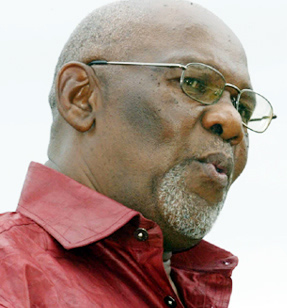Importance of the quota system
IN order to carry out their primary elections, MDC-T used the nomination system. The system meant that if the women were not in decision making positions before then they were left out in the primary election race. Considering that they were fewer women in the last parliament, and then automatically men retained their seats, if the electorate voted them in again.
On the other hand, Zanu-PF used a more democratic process whereby anyone could contest during the primary elections. It was up to the women themselves to go out and register as aspiring candidates. The women had an opportunity to either brace themselves for the race or not.
According to the SADC Gender Protocol on Development women should occupy half of the decision making positions by 2015. Basing on the fact that the previous Parliament, as well as the Senate had 17% and 23 % women representatives respectively, one wonders whether the 50-50 representation will ever be attained in Zimbabwe.
The Constitution of Zimbabwe is clear on the 50-50 representation of both men and women in all sectors and all the SADC member states should ensure that the target is reached by 2015.
The quota system of course will enable the Government to get to another level in terms of shared decision making between men women.
Redistribution of power and positions ensures that equal opportunities for both men and women are created. Fair preferential treatment of sexes ensures equal protection, positions, advantages and benefits that should otherwise accrue to them.
Deviation on what should be awarded to men and women in terms of power is evidence of non adherence to issues of equity and equality. At the present moment, the mere fact that fewer women were in the lower strata of decision making in both the public and private sectors is indicative of past and present discrimination of women.
While, the new Zimbabwe Constitution is clear on issues of gender equality, it is the practical aspect that ought to be harnessed so that women are taken on board. At times it is the silent nature of women that make them continue to be trampled and discriminated against. In the case of the use of nomination by MDC-T, the female aspiring candidates kept quiet though the system was clear it would leave out the women in the primary race. It will then take us a bit of time for women to fight for what is theirs.
What happened is therefore a clear violation of women’s constitutional rights. Excluding certain citizens from benefits made available to other citizens is in contrast to the issues of gender equity and equality that nations the world over are trying to address.
The promotion of women to positions of power in all sectors still remains low and this is disproportionate with the fact women constitute 52 percent of the Zimbabwean population.
One wonders how many women engineers, architectures, pilots and doctors we could be having had it not been due to past sex discrimination in educational opportunities between boys and girls. Had it not been of the past injustices, then women would be represented in every area in proportion to the general population.
Women in Zimbabwe are therefore obligated to assume proportional representation unless otherwise there are concrete reasons for not achieving this.
The appointment of the Zimbabwe Electoral Commission chairperson, Justice Rita Makarau bears testimony of how Zimbabwe is in the right direction towards the appointment of women to higher offices and it would be plausible if more and more women are promoted likewise. Research actually maintains that women are better managers; hence the question of “ability” cannot be given as an excuse.
Placing women in their rightful positions is only giving them back what was already entitled to them without taking away much or damaging the status quo.
The purpose of the quota system therefore should be upheld, as it tries to reverse the situation in which differences existed between men and women through social, political and economic structures. These turned disadvantaged and hindered the participation of women in democratic processes of the government.
The distribution of opportunities and benefits between men and women should be the same. The quota system therefore targets the women because all the discriminatory practices of the past were targeted against them as a vulnerable group. Therefore the quota system is meant to offset the disadvantages imposed on women.
The writer is Vaidah Mashangwa, Provincial Development Officer, Ministry of Women Affairs, Gender and Community Development. She can be contacted on 0772111592 / (09) 889224. Email:[email protected]








Comments